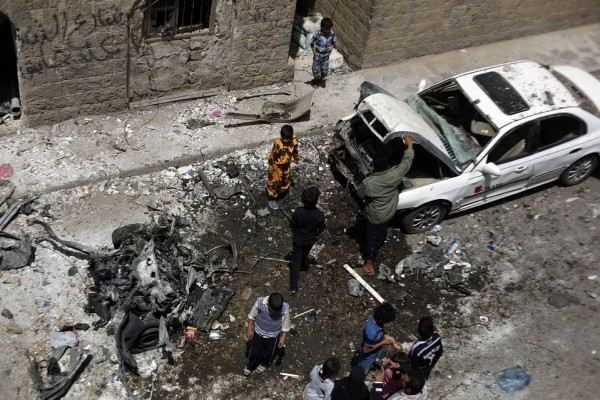
Today, another phony war is being waged, this time in the Middle East. Those opposed to Islamic State—the Saudis, Iraqis, Kurds, Turks and, yes, Americans—mostly squat and occasionally harass, unable or unwilling to strike decisively.
On the other side of the battlefield, Islamic State and Iran, though from rival sects and opposed in their ultimate ends, are matched in violence, ambition and immediate aims.
Tehran seeks to attain nuclear weapons; to dominate oil-rich, Arab-Shiite southern Iraq; and to preserve its Syrian ally, Bashar Assad. These three purposes advance its dream of controlling the region and becoming the knife’s edge of Islam’s penetration into the West.
For now, Islamic State advances these goals, which limits direct conflict between the two powers. Each sees the other as a most useful enemy, helping consolidate support and hold the U.S. at bay.
In Syria, Islamic State only spars with Mr. Assad, even abetting his efforts to gut the “moderate” opposition. Fearful that Islamic State would dominate a post-Assad era, the U.S. largely stays its hand, unwilling to aid Mr. Assad or depose him. Thus, Mr. Assad and Islamic State preserve each other. As a bonus, U.S. inaction discourages the Turks from assisting anti-Assad Sunnis in Syria or anti-Islamic State Sunnis in Iraq.
Baghdad’s Shiite leaders, under threat from Islamic State and seeing U.S. hesitation, embrace Iranian support. Tehran stages anti-Islamic State forays but mostly defends Baghdad and the Shiite south. In turn, this increased role of Shiite militias and Iran’s Revolutionary Guard Corps prevents Sunnis in the western Anbar Province from turning on their Islamic State masters. Better to be enslaved by Islamic State, these Sunnis reason, than to fall into the hands of a Shiite militia. The resulting centrifugal forces tear the country apart and press Iraqis toward one camp or the other. Neither helps us.
Tehran knows that the Obama administration dreams of a nuclear deal and, unwilling to act in Iraq, hopes that Iran will slay the Islamic State beast. So the U.S. cedes ground in the nuclear talks and temporizes.
The Obama administration lately projects an anti-Islamic State campaign of three to five years at best, or a decade perhaps at worst. Meanwhile, U.S. leaders hope to tame Iran’s nuclear hunger and bloody misdeeds with inspections and respect, a coin that must be paid in years of restraint. Maybe the administration believes regional powers can be goaded into not just pricking, but, with limited U.S. aid, defeating Islamic State and Iranian ambitions.
Whatever the reasoning the net consequence is the same: Iran and Islamic State have won years to gather weapons and riches, inflame hatreds, reap recruits and plot. The time will come, Islamic State and Iran know, to settle scores between them. But that will be another day. In the interim, both prosper.
The administration preserves its focus on preferred domestic goals. President Obama proclaims that he envisions a benign equilibrium taking hold in the region in the mid to long term.
But it isn’t hard to envision the Middle East, bereft of U.S. leadership and awash in blood, with its hatreds and violence spilling ever westward. Herein lies the great gamble of the phony war.
To be successful, Mr. Obama’s strategy must judge rightly the enemies’ future strategies and America’s own. If the enemies defy his expectations, or if future administrations reject the risks he has accepted, we will regret having dallied as the first lines of defense eroded.
Historians recognize that, having long misplayed their hands, the Allies had few choices at the onset of World War II. They used their phony war to rearm. Future generations may not be so kind toward ours.
THE WALL STREET JOURNAL

Leave a Reply
You must be logged in to post a comment.